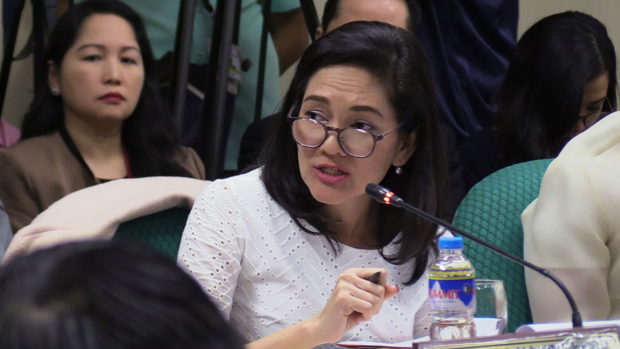Senator Risa Hontiveros urged the House of Representatives on Monday to act on a bill that would extend paid maternity leave, decrying the current 60 days a “serious public health risk.”
“It has been truly insufficient in keeping up with the health needs of women, and the nutritional needs of their children,” said Hontiveros, who authored the proposed Expanded Maternity Leave Law passed on third and final reading in the Senate last May.
The current number of days is well below the international standard of 98 days stipulated in Convention 183 of the International Labor Organization, which the Philippines has committed to.
The country also has the shortest paid maternity leave policy in Southeast Asia. Hontiveros’ measure would bring the number of days of paid leave to 120, and 150 for single mothers.
The medical community made a united show of force in support of the bill on Monday, saying that there was overwhelming evidence of the health and economic benefits that longer maternity leave would bring.
“The push to increase the number of maternity leave days is rooted not only in social justice and equality, it has basis in good medical science,” said Dr. Edmyr Macabulos of the Philippine Medical Association and Philippine College of Occupational Medicine.
Hontiveros said that private sector concerns about the cost of such a measure had stalled the bill at the House, but health professionals argued that it would actually lead to greater workplace productivity.
“Longer bonding time between parents and their children decreases parent unease in the workplace, increasing the productivity of parents when they return,” Macabulos said.
He added that because expanded maternity leave would better the health of both mother and child, these women would be less likely to take additional leaves in order to tend to sickly newborns or to their own wellbeing.
Hontiveros said the initiative would lead to “higher morale, deeper loyalty and longer-term employment within the company, all of [which] are elements of sustained productivity.”
Studies have found that in addition to providing a mother with more time to recover from the physical, mental and emotional effects of childbirth, longer paid leave also reduces infant mortality by as much as 10 percent.
It can also prevent the baby’s stunting while strengthening the child’s immune system due to the longer time it gives mothers to breastfeed.
“The expanded leave will nurture the relationship between women and their children through breastfeeding and proper bonding that is crucial to both their wellbeing,” said Dr. Merle L. Salvani, national president of the Philippine Nurses Association Inc.
Dr. Jody Dalmacion of the Philippine Obstertrics and Gynecological Society added: “The health risks don’t end in childbirth and delivery, there are also psychological changes that can be very dangerous to the woman.”
Hontiveros said that Malacañang had not signaled any opposition to the measure, and hoped that President Duterte would find it well-suited to the agenda of the Department of Health.
